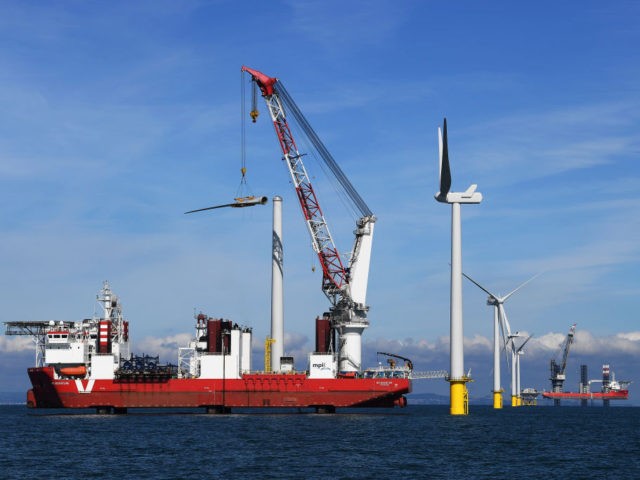The National Grid has released its preliminary report into the power cut which caused massive disruption across the UK on August 9th, affecting over a million people and creating chaos in rail and road services.
Paul Homewood summarises the main points here:
- Lightning was the original cause, even though such strikes are perfectly common, and do not usually result in such catastrophic blackouts
- Hornsea wind farm tripped first, contrary to original reports.
- They still don’t seem to know exactly why either Hornsea or Little Barford tripped, though it was obviously due to the lightning.
- Along with the loss of 500MW of small embedded generation (wind and solar), the total loss was about 1878MW
- National Grid has 1000MW of automatic back up power available, incl 472MW of battery storage. Clearly this was not enough.
- Following the lightning strike, the grid’s protection systems worked properly
But more interesting, he goes on to argue, is what the report doesn’t tell you:
- When Hornsea wind farm is fully operational in the next year or so, it will have capacity of 1200MW. In addition, Hornsea Project 2, due on line in 2024, will have an additional 1386MW capacity. It is not clear whether it will share the same transmission lines, but to have so much capacity at risk of tripping off is clearly far too big a risk.
- The importance of inertia, provided by heavy rotating turbines, is not discussed. If more gas and coal power had been running at the time, would the blackouts have occurred. Just as importantly, what will happen in a few years time, when gas is no longer part of the normal baseload and is simply turned on when the wind is not blowing?
- While the National Grid claim that their backup power worked properly, such measures are only useful for a short period of time, maybe an hour. The report does not mention that gas power very quickly made up the shortfall, within about half an hour.
Well indeed. Since the disaster – which left passengers stranded on trains for many hours and cost heaven knows how many million man-hours of heartache, irritation and economic disruption – the National Grid has busily sought to excuse itself by repeatedly pointing out how unusual the incident was – the result of a freakish, near-simultaneous shut-down of two power stations, one wind-powered and one gas-powered.
But the responsibility of the National Grid is to allow for such freakish eventualities and to ensure there is always enough back up to provide electricity in the very worst-case scenarios. This power cut was not a perfectly forgivable lapse but in fact an inexcusable indictment of a failing system, in thrall to doctrinaire greenies who simply refuse to accept the degree to which the grid is being increasingly unbalanced by the drive for renewable energy.
As in South Australia, so it will prove in the UK: the more unreliables (wind and solar) that are imposed on Britain’s electricity grid (for cosmetic, political reasons), the more likely power cuts will become.
So powerful are the vested interests in the renewables industry, however, that the truth is likely to be suppressed for some time to come.
See, for example, how eager the Times’s Energy correspondent (and renewables advocate) little Emily Gosden was to pour scorn on my suggestion that wind energy was to blame for the power cut:
We now know that I was right and Emily was wrong. The Hornsea wind farm did trip first. The only reason people initially thought otherwise because it had — ahem — misrepresented the precise time when it went down.
Of course, being completely wrong was no bar to all those greenie useful idiots attacking me on Twitter and rehearsing all the usual lies about how evil fossil fuels are and how amazing renewables are.
Guess the last laugh’s on me, eh, thicko Rosalind?

COMMENTS
Please let us know if you're having issues with commenting.